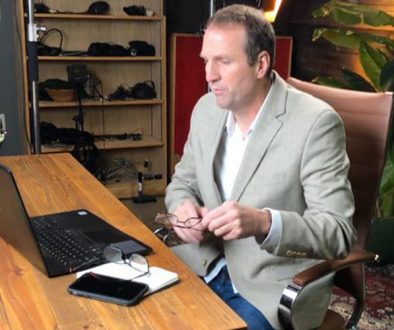No one way! What are the common factors of recovery?
Recoveryism is a term used to describe an unfortunate attitude that pervades much of the addiction treatment and recovery world. This attitude crosses all modalities of recovery and is present within many prestigious treatment organizations. The attitude is one of superiority in regards to one’s individual recovery. People engaging in recoveryism hold tight to the view that there is a right way to approach recovery. Of course these people believe their way is the correct pathway to recovery. William White defined recoveryism in the following way:
“In 2006, Tom Horvath, President of SMART Recovery, penned a brief article in which he coined the term recoveryism. He used the term to depict assertions that a particular approach to addiction recovery was superior to all others – that there really is only ONE effective approach to addiction recovery. Horvath rightly called our attention to a special form of bigotry sometimes exhibited by people who are grateful for their own brand of recovery. There are those in secular, spiritual, and religious pathways of recovery who have claimed ultimate eminence for their particular ideas and methods and viewed alternatives as inherently inferior. Radical abstentionists and radical medicationists continue acrimonious debates marked by more heat than illumination. Those who enter recovery with and without specialized addiction treatment have each claimed a form of superiority, as have those who maintain recovery with and without participation in recovery mutual aid groups. Each of these approaches is in turn subject to internal dissension about how that approach should best be pursued”. (White, 2013)
Of course, recoveryism involves 12-step versus alternative pathways. However, it also involves 12-step versus 12-step. For example, some in the AA fellowship will challenge the validity of the NA fellowship and vice versa. It can even go deeper. Many times, people will disparage different home groups. We do it the right way at “our group” and they don’t do it right at the “other group” is a position held by some. It is even possible for dissension to arise within a home group regarding the “right way” to do recovery. The same can be said for those attached to a “clinical” solution. These individuals emphasize a specific therapeutic method to the exclusion of all others. As White says above, medication assisted treatment advocates can sometimes become married to the medication only solution. 
Despite these assertions, we know the facts. Recovery takes on many forms. There are multiple pathways to recovery and there are millions in recovery.
Rather than taking a “my recovery is better than yours” approach, perhaps a better approach would include a focus on the common factors of recovery. What if we shifted the question from: What is the best pathway? To What is common across many of the pathways?
The more actively one engages in these various components of recovery, the more likely recovery becomes. This does not mean recovery will not happen with the absence of any given factor.
Common Factors:
- Recovery works best when addiction is in remission. Stating the obvious. It is very hard to find recovery if you are actively abusing drugs or alcohol. However, you can certainly initiate the recovery process while still using. Many people need time to “figure it out” and we recommend that people “keep coming back” no matter what. This includes active use. But for the record, recovery works best when you “put it down”.
- Change in lifestyle and minimizing environmental triggers. Most people who make a substantial change in using behavior also make a substantial change in people,
places and things. You must trade in your old life for something new. It is very hard to stop a behavior if you continuously expose yourself to temptations and reminders related to that behavior.
- The curative factors of the group experience. Irvin Yalom articulated best what happens in group therapy. Group is a unique place. Group gives participants an opportunity to hear from a wide variety of people and tap into some of Yalom’s curative factors:
- Universality: you realize you are not alone.
- Instillation of Hope: you can look around the room and see people who have overcome.
- Interpersonal Learning/Socialization: you can get tips and pointers on how to do life from group members.
- Altruism: you have an opportunity to help another person. That is invaluable.
- One-on-one with an “expert”. Group is very important but we also believe that a one-on-one relationship is very important. Furthermore, we believe this individual contact should be with an expert in recovery. Preferably someone in recovery. However, I will go on the record. I have known people who found recovery primarily through a therapist or a clinician who was not in recovery. One-on-one is important because it allows for in-depth exploration of issues. You can receive more attention and focus individually. In addition, there are some things that you just don’t want to discuss at the group level.
- Pursuit of continuous self-improvement. People in recovery tend to focus on self-
“some” of his family… improvement and happiness. However, the pathways of self-improvement are highly variable. Some focus on exercise and physical health initially. Many use the 12-step program. Some work diligently in therapy and life-coaching. There are many who go back to school and pursue their work dreams. There is also an emphasis on reconciling relationships and healing. Some do all of the above. Whatever the details we know; the escalator is going up or going down. Staying put is not an option.
- Filling the void. The obvious thought that comes to mind here is the spiritual component of recovery and certainly spiritual pursuits meet the criteria for filling the void. Again, the facts are there is no one way to work on these spiritual matters. The idea that one person can dictate spiritual experiences to another person is fundamentally non-spiritual. I would encourage a broader look at the issue of filling the void. Victor Frankl in Man’s Search for Meaning summed it up very well when he said: “When a person can’t find a deep sense of meaning they distract themselves with pleasure”. And on addiction Frankl said: “Addiction is the result of living a life without personal meaning”. For Frankl finding meaning came in a wide variety of forms and we would agree with him.
- Keep coming back. Finally, and most importantly, never give up. If you keep showing up for therapy, recovery meetings, individual meetings you will find recovery. It is available to all of us.

 places and things. You must trade in your old life for something new. It is very hard to stop a behavior if you continuously expose yourself to temptations and reminders related to that behavior.
places and things. You must trade in your old life for something new. It is very hard to stop a behavior if you continuously expose yourself to temptations and reminders related to that behavior.


